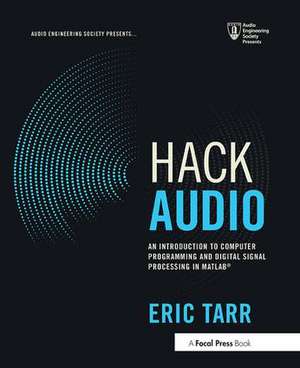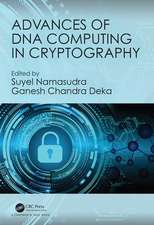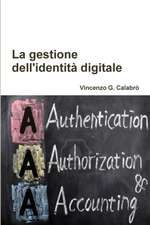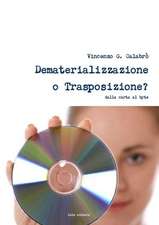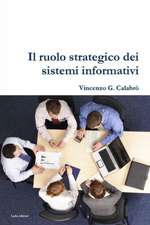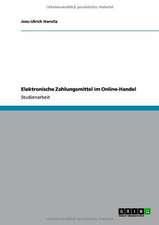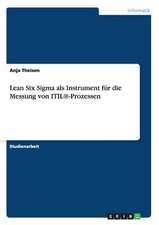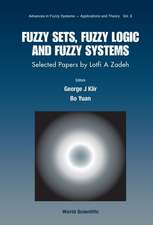Hack Audio: An Introduction to Computer Programming and Digital Signal Processing in MATLAB: Audio Engineering Society Presents
Autor Eric Tarren Limba Engleză Paperback – 3 iul 2018
Hack Audio: An Introduction to Computer Programming and Digital Signal Processing in MATLAB provides an introduction for musicians and audio engineers interested in computer programming. It is intended for a range of readers including those with years of programming experience and those ready to write their first line of code. In the book, computer programming is used to create audio effects using digital signal processing. By the end of the book, readers implement the following effects: signal gain change, digital summing, tremolo, auto-pan, mid/side processing, stereo widening, distortion, echo, filtering, equalization, multi-band processing, vibrato, chorus, flanger, phaser, pitch shifter, auto-wah, convolution and algorithmic reverb, vocoder, transient designer, compressor, expander, and de-esser.
Throughout the book, several types of test signals are synthesized, including: sine wave, square wave, sawtooth wave, triangle wave, impulse train, white noise, and pink noise. Common visualizations for signals and audio effects are created including: waveform, characteristic curve, goniometer, impulse response, step response, frequency spectrum, and spectrogram. In total, over 200 examples are provided with completed code demonstrations.
| Toate formatele și edițiile | Preț | Express |
|---|---|---|
| Paperback (1) | 443.38 lei 3-5 săpt. | +36.66 lei 6-10 zile |
| Taylor & Francis – 3 iul 2018 | 443.38 lei 3-5 săpt. | +36.66 lei 6-10 zile |
| Hardback (1) | 1346.58 lei 6-8 săpt. | |
| Taylor & Francis – 20 iun 2018 | 1346.58 lei 6-8 săpt. |
Din seria Audio Engineering Society Presents
-
 Preț: 367.77 lei
Preț: 367.77 lei - 8%
 Preț: 423.16 lei
Preț: 423.16 lei - 20%
 Preț: 1255.45 lei
Preț: 1255.45 lei - 20%
 Preț: 433.36 lei
Preț: 433.36 lei - 20%
 Preț: 248.37 lei
Preț: 248.37 lei - 20%
 Preț: 761.70 lei
Preț: 761.70 lei - 20%
 Preț: 572.40 lei
Preț: 572.40 lei - 20%
 Preț: 401.86 lei
Preț: 401.86 lei - 8%
 Preț: 514.22 lei
Preț: 514.22 lei -
 Preț: 392.78 lei
Preț: 392.78 lei -
 Preț: 315.74 lei
Preț: 315.74 lei - 20%
 Preț: 227.76 lei
Preț: 227.76 lei -
 Preț: 290.73 lei
Preț: 290.73 lei - 20%
 Preț: 223.68 lei
Preț: 223.68 lei - 20%
 Preț: 254.05 lei
Preț: 254.05 lei - 20%
 Preț: 288.29 lei
Preț: 288.29 lei -
 Preț: 341.21 lei
Preț: 341.21 lei - 15%
 Preț: 491.39 lei
Preț: 491.39 lei -
 Preț: 445.79 lei
Preț: 445.79 lei -
 Preț: 390.96 lei
Preț: 390.96 lei -
 Preț: 352.63 lei
Preț: 352.63 lei
Preț: 443.38 lei
Preț vechi: 481.94 lei
-8% Nou
Puncte Express: 665
Preț estimativ în valută:
84.84€ • 88.59$ • 70.06£
84.84€ • 88.59$ • 70.06£
Carte disponibilă
Livrare economică 26 martie-09 aprilie
Livrare express 11-15 martie pentru 46.65 lei
Preluare comenzi: 021 569.72.76
Specificații
ISBN-13: 9781138497559
ISBN-10: 113849755X
Pagini: 492
Ilustrații: 8 Tables, black and white; 282 Line drawings, black and white
Dimensiuni: 191 x 235 x 32 mm
Greutate: 0.9 kg
Ediția:1
Editura: Taylor & Francis
Colecția Routledge
Seria Audio Engineering Society Presents
Locul publicării:Oxford, United Kingdom
ISBN-10: 113849755X
Pagini: 492
Ilustrații: 8 Tables, black and white; 282 Line drawings, black and white
Dimensiuni: 191 x 235 x 32 mm
Greutate: 0.9 kg
Ediția:1
Editura: Taylor & Francis
Colecția Routledge
Seria Audio Engineering Society Presents
Locul publicării:Oxford, United Kingdom
Public țintă
Professional and UndergraduateCuprins
Dedication List of Tables List of Figures Acknowledgements 1 Introduction 2 Basics of Programming in MATLAB 3 Basics of Audio in MATLAB 4 LAB Programming Environment 5 Logicals and Control Structures in Programming 6 Signal Gain and DC Offset 7 Introduction to Signal Synthesis 8 Summing, Fades, and Amplitude Modulation 9 Stereo Panning and Mid-Side Processing 10 Distortion, Saturation, and Clipping 11 Echo Effects 12 FIR Filters 13 IIR Filters 14 Delay Buffers and Fractional Delay 15 Modulated Delay Effects 16 Algorithmic Reverb Effects 17 Amplitude Envelope Effects 18 Dynamic Range Processors Index
Notă biografică
Eric Tarr is an assistant professor of Audio Engineering Technology at Belmont University in Nashville, TN. He teaches classes on digital audio, computer programming, signal processing and analysis. He received a Ph.D., M.S., and B.S. in Electrical and Computer Engineering from the Ohio State University. He received a B.A in Mathematics and a minor in Music from Capital University in Columbus, OH. His work has spanned across the topics of speech signal processing, musical robotics, sound spatialization, acoustic and electronic system modeling, hearing loss, perception and cognition. He has published articles in the Journal of the Acoustical Society of America, Journal of Speech, Language, and Hearing Research, International Journal of Audiology, and Mechanical Engineering Research. He is a member of the Audio Engineering Society. In 2015, Dr. Tarr received the Gibson Foundation Les Paul Music Innovation Award as the principal investigator of a research grant on "Blockchain Technology in the Music Industry."
Recenzii
"Part of Hack Audio’s success is its ability to convey information in a variety of ways. Tarr’s written explanations are always concise but never lacking in information. The page count never feels daunting since large portions of each chapter are dedicated to graphics and sample MATLAB code. The sample code is kept succinct, which should help students understand the purpose of each script. [...] Hack Audio is able to capture readers’ attention through compelling illustrations (i.e., block diagrams, Cartesian graphs) and "visualizations" (i.e., waveforms, characteristic curves, impulse responses, frequency responses, and spectrograms). The block diagrams were a personal favorite and helped to illustrate the interconnectedness of certain audio effects (i.e., inverting the delay used for a notch filter results in a band-pass filter). Students will become comfortable discussing audio effects in a number of different ways: graphically, verbally, and sonically. […] Hack Audio is an unpretentious and pleasant read, buoyed by Tarr’s love and passion for the subject. All students and instructors in an audio-related field should check out the Hack Audio website. Both the blog and textbook will quickly become your favorite go-to resources for digital signal processing concepts." Brandon Cudequest, Threshold Acoustics, LLC. Chicago, Illinois
Descriere
Computers are at the center of almost everything related to audio. Whether for synthesis in music production, recording in the studio, or mixing in live sound, the computer plays an essential part. Audio effects plug-ins and virtual instruments are implemented as software computer code. Music apps are computer programs run on a mobile device. All these tools are created by programming a computer.
